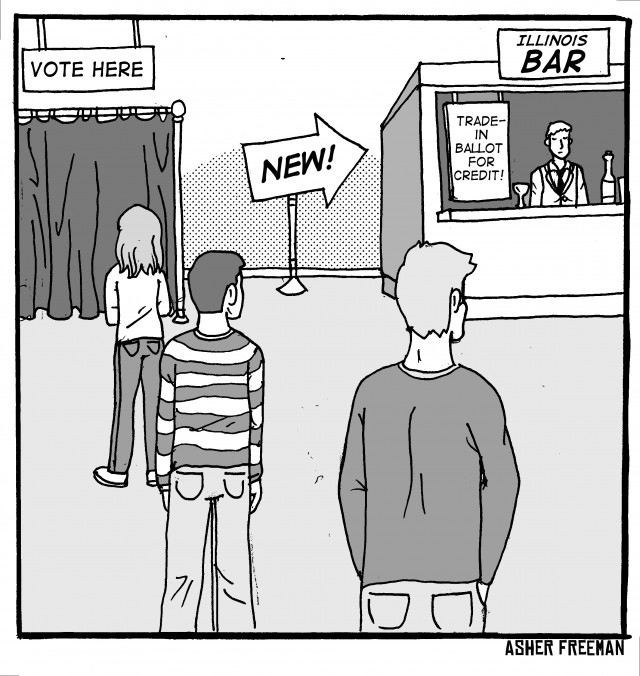Lawmakers all over the country have taken different approaches to marijuana policy. Some have stuck with an old policy of banning it completely, some have decriminalized the substance and some have let go entirely and legalized it. The future of the legality of marijuana is for the courts to decide, but one approach that absolutely will not work is what lawmakers in Illinois have proposed.
Illinois lawmakers have listed 41 medical conditions that qualify for medical marijuana for treatment. The problem is people seeking medical marijuana can only obtain it if they agree to be fingerprinted, go through a background check, pay $150 per year and give up their right to own a firearm. If a person applying for the program already has a legally-obtained firearm, then this person will have to either give up the gun or be rejected from the program.
The current U.S. Department of Justice firearm application form asks applicant if they are “an unlawful user” of certain drugs, including marijuana. This entanglement of legality will have to be sorted out in court and laws like this are forcing the judicial system’s hand.
Stand where you will on issues pertaining to gun rights and marijuana. There is an important issue underlying this policy that could be dangerous for future Americans if it is allowed to stand. The idea that rights can be traded or exchanged is unconstitutional and dangerous.
The Declaration of Independence states very clearly what the founding fathers believed about rights when it states, “[We] are endowed by our Creator with certain unalienable rights …”
Our rights are unalienable. That means that they cannot be sold, traded, exchanged, taken away or separated from us in any way. Illinois cannot grant rights by requiring certain people to forfeit another.
The intent of what Illinois is trying to do makes sense, however. It is dangerous for someone to simultaneously smoke marijuana and wield a gun. When someone’s judgment is impaired, they should not have a gun in hand.
Even so, people should not be forced to surrender their gun rights entirely. After all, it is dangerous for someone to simultaneously drink alcohol and drive a car, but it wouldn’t be right to force someone to give up one for the sake of the other. We have a way of enforcing laws pertaining to people driving under the influence of alcohol so that people can enjoy more freedoms. This is the approach that Illinois needs to take.
Illinois has traditionally been an anti-gun state, but trading rights away isn’t the way things are decided in the United States. Imagine if Supreme Court cases had been decided using this reasoning.
Would it have made sense in 1954 during the Brown v Board of Education case to tell non-white children that they could attend white schools if they gave up their right to free speech? Of course not.
What if, in Texas v Johnson, the Supreme Court had ruled that offensive speech is protected under the First Amendment as long as people with unpopular opinions agree to give up their right to vote? That, too, would have been wrong.
The dangers of this kind of policy are clear. The courts cannot allow a policy like this to exist because it sets a frightening precedent for our future.






